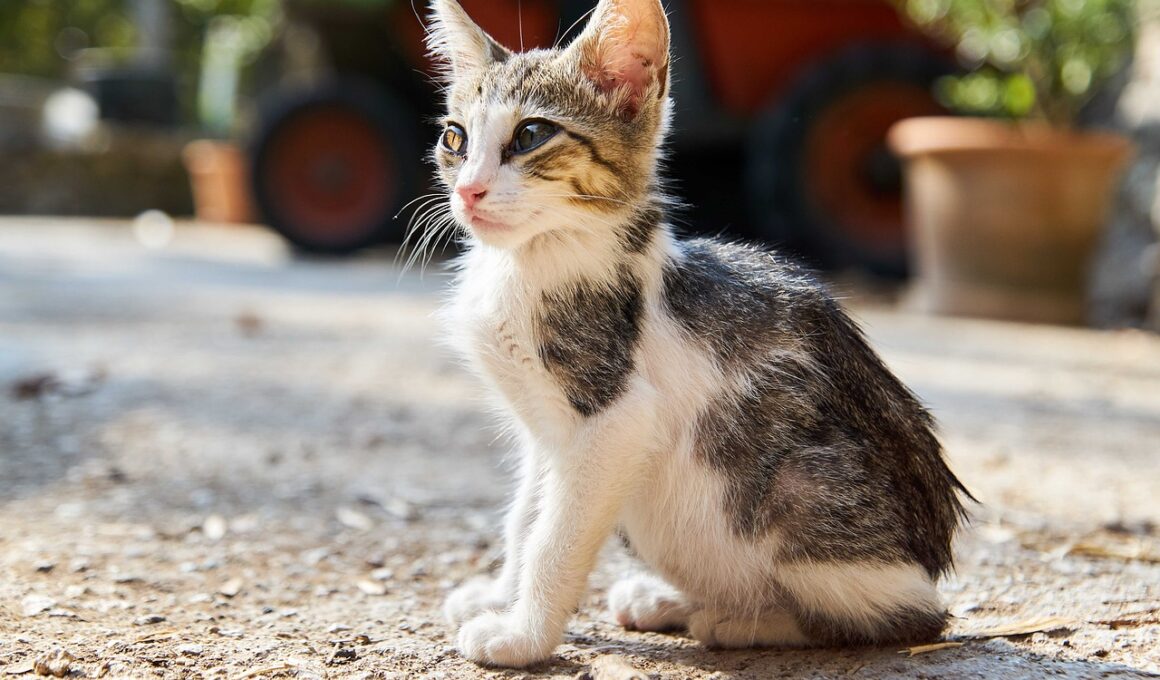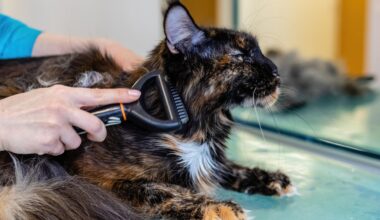Breed-Specific Rules for Kitten Registration You Must Follow
When it comes to registering kittens, breed-specific guidelines must be followed by breeders to ensure compliance and integrity. Every breed has unique characteristics that define its standards. The first step is understanding the registration authority relevant to each breed; for example, the Cat Fanciers’ Association (CFA) and The International Cat Association (TICA) have distinct requirements. Generally, pedigree information is required to validate a kitten’s lineage, including details about the parents and the registered breed. Breeders must also provide health documentation indicating vaccinations and any genetic testing results for congenital issues. Keeping this documentation accurate and up-to-date is crucial. Furthermore, registration fees can vary widely depending on the authority and the specific breed of the kitten. It’s advisable to consult the applicable registration guidelines thoroughly to familiarize yourself with the necessary steps for the particular breed you are dealing with. Remaining diligent in this process not only fulfills legal requirements but also fosters responsible breeding practices in the overall cat community.
It’s imperative that breeders engage in responsible breeding practices as they relate to kitten registration. Most registration bodies emphasize the importance of ethical breeding, which involves understanding the breed standards established by the respective authority. Apart from pedigree verification, the documentation usually includes vaccination records and ensuring that each kitten is free from hereditary diseases. This is vital for maintaining the health of the breed. Additionally, breeders are often required to show proof of socialization practices for their kittens. This includes interactions with humans and other pets, which play an essential role in developing a well-adjusted and confident cat. Steps such as issuing microchips for identification are also encouraged during registration. This form of permanent identification not only helps reunite lost kittens with their owners but also enhances the breed’s reputation among potential buyers. Failure to comply with these guidelines can lead to complications during registration and affect the breeder’s standing within the community. Prospective breeders should ensure they are well-versed in these breed-specific rules for proper kitten registration.
Understanding Registration Standards
To navigate the complexities of kitten registration, breeders must delve deeply into the registration standards set forth by regulatory bodies. Each cat breed has a standard that outlines its unique attributes, including coat patterns, colors, and physical characteristics. For instance, the Siamese is known for its striking contrasts and short, fine coat, while Maine Coons boast a larger frame and long fur. Breeders should familiarize themselves with these standards to accurately describe their kittens during registration. Providing correct descriptions helps maintain the integrity of the breed and ensures future generations adhere to the original characteristics. Registration authorities may also periodically update their standards, reflecting any genetic or health advancements in the breed. Breeders should routinely check for updates and adjust their practices accordingly. Additionally, it’s important that registrants prepare for inspections or evaluations by the registration body, which may include assessments of breeding environments and health practices. Proper preparation ensures compliance and enhances the overall reputation of the breeding operation.
When registering kittens, documentation plays a crucial role in establishing the authenticity of each animal’s lineage. Accurate and comprehensive paperwork helps to build a solid foundation for ethical breeding. In addition to pedigree documents, breeders may need to provide health clearances, vaccination records, and even DNA testing results, depending on the breed. Health screenings ensure kittens do not suffer from common hereditary health issues that could arise in their breed lineage. Efficient records management becomes key for breeders when organizing this documentation. They must maintain detailed records throughout the kitten’s life, including any medical interventions, vaccinations administered, and any transfers of ownership that occur. This information serves not only to assist current owners but also enhances the kitten’s value for potential buyers. Furthermore, clear documentation becomes a tool to combat fraud in the market, ensuring that every kitten is represented accurately. As regulations evolve, breeders are encouraged to seek guidance from existing registries to remain compliant and proactive in their registration efforts.
The Importance of Ethical Practices
Maintaining ethical practices in cat breeding directly impacts the success and compliance of kitten registration. Ethical breeding not only fulfills registration requirements; it also builds trust with potential kitten owners. Responsible breeders prioritize the well-being of their animals, ensuring they are bred in safe, clean environments and receive proper medical care, nutrition, and socialization. Engaging in humane practices can prevent overcrowding and health issues, both of which undermine a kitten’s future and breeding reputation. Additionally, ethical breeders are often members of breed clubs and associations that promote responsible practices and support ethical guidelines. These organizations can be invaluable resources for continuing education on best practices and ongoing changes in registration standards. Additionally, transparency regarding breeding practices encourages a healthy relationship between breeders and kitten owners, which benefits the overall cat community. Also, a commitment to ethical breeding supports the protection of individual breeds, aiming for healthier and more stable populations, ultimately leading to better outcomes for both kittens and future owners.
Finally, the kitten registration process concludes through the finalization and submission of all required forms and fees to the appropriate registration authority. Following the guidelines meticulously during this process is essential to avoid pitfalls or delays. Most registries provide checklists and resource materials to assist breeders in completing the registration accurately. Ensure that all paperwork is complete and signed before submitting; overlooking any aspect could lead to refusals or requests for additional information. Furthermore, if there are any discrepancies between the submitted papers and the actual kittens being registered, it can create complications that affect the entire breeding reputation. After successful registration, breeders should carefully store all documentation as it will be vital for any future sales or transfers, ensuring that every kitten is traceable to its lineage. Additionally, strong record-keeping helps in case of health issues arising later in life, as previous information will assist veterinarians in providing the best possible care. In conclusion, kitten registration requires attention to detail and a commitment to responsible practices.
Conclusion
In summary, following breed-specific rules for kitten registration is not only a vital legal obligation but also a cornerstone of responsible breeding. Breeders must dedicate time to understanding the unique characteristics and requirements of each breed. Thorough documentation, ethical practices, and adherence to standards set forth by registration bodies promote healthy breeding environments and improve the quality of kittens entering homes. This approach reflects a commitment to elevating the status of feline breeds while simultaneously safeguarding their health and welfare. By remaining informed and proactive with registration guidelines, breeders positively contribute to the overall integrity of the feline breeding community. Engaging with other breeders, clubs, and registries can provide a wealth of information and support for effective breeding practices. The end goal is a thriving community of healthy, well-cared-for kittens that represent their breeds admirably. Furthermore, as breeders seek to enhance their knowledge and expertise, they will find that their commitment to following breed-specific rules is reflected in their success and the satisfaction of kitten owners.
Ultimately, the journey of kitten registration underscores the importance of responsibility and dedication in cat breeding. Each step, from understanding breed standards to maintaining thorough documentation and continuing ethical practices, plays a role in shaping the future of kitten breeding. Breeders should celebrate their responsibilities as guardians of breed integrity, ensuring that each kitten is bestowed with the honor it deserves. Educational resources abound for those willing to grow and adapt their businesses for the betterment of the feline community. Remember, informed breeders lead the way to a brighter future for cats everywhere, contributing positively to both individual pet ownership experiences and the global cat community at large. This creates a cycle of accountability and respect within the breeding world, which is essential as the need for ethical practices continues to rise. In essence, kitty registration is a critical component that reflects the culmination of diligent efforts by breeders to produce well-formed, healthy cats. With this understanding, breeders are empowered to take the necessary steps to fulfill their duty toward responsible kitten registration and beyond.


